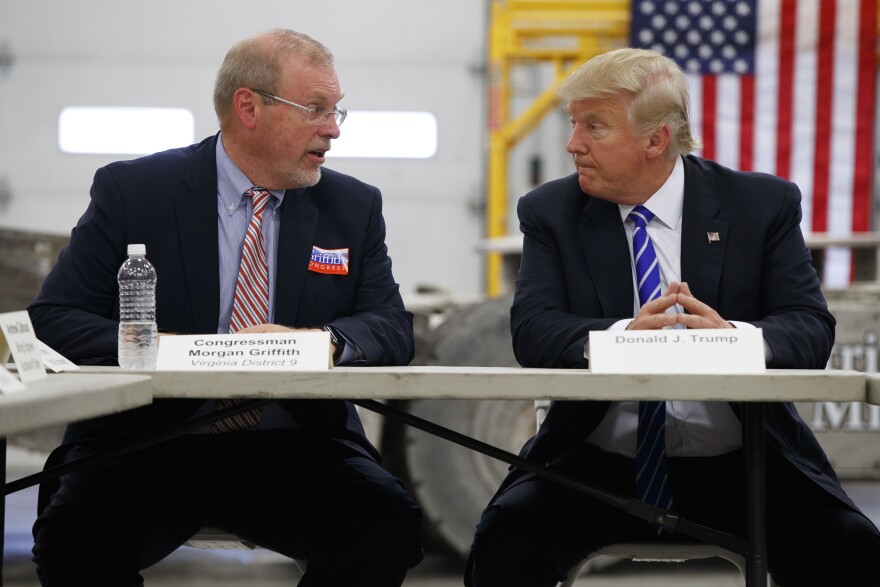A newly reinstated rule in Congress has Democrats worried that Republicans are going to try to fire a large swath of federal workers, which could hurt the economy across the commonwealth. Matt Laslo has the story from the Capitol.
It’s no secret that Republicans want to reduce the size of the federal workforce, and now they have a tool that can help them in that effort.
When Congress gaveled into their new session last week Republicans quietly reinstated a rule that allows any lawmaker to try to fire individual federal worker’s salaries or to outright cut their position. Walking past the subway under the Capitol Virginia Democratic Senator Mark Warner raises concerns about the little known Holman Rule.
“It flies in the face of everything civil service protections and other protections for federal employees that were created,” he says.
The Holman Rule was first placed on the books in 1876 but it lapsed in1983. Last week, it was revived.
Warner says he fears Republicans will use the rule to slash the salaries of federal workers, which could be felt across the state. That’s because almost 200,000 federal employees live and pay taxes in Virginia.
“The idea that for a state like Virginia that relies so much on federal government spending, to suddenly say we’re going to have the equivalent of a modern day witch hunt on federal employees, that’s going to hurt even parts of the commonwealth that don’t rely on federal spending, since so much of Northern Virginia, Hampton Roads funnels the coffers that fills the Treasury,” says Warner.
And yet reinstating the rule was the brainchild of a Virginian: Republican Congressman Morgan Griffith of southwest Virginia. He says critics like Warner are fear mongering and that the rule exists for a simple reason.
“So that we can do more effective cutting of spending as we move forward. So that when something comes up we’re not blocked by our own rules in doing what the Constitution gives us the prerogative to do and that is to dictate where money is spent in the federal system,” he says.
Griffith adds that just because Congress has the power to target federal employees and programs doesn’t mean they will.
“I often remind folks that we have the power without the president to declare war on Canada, that doesn’t mean we’re about to do so,” Griffith says. “So restoring the power of the purse in reality to Congress doesn’t mean that we’re suddenly going to be laying off tens of thousands of federal employees.”
Virginia Republican Rob Wittman says he expects his party to use the rule to go after bad apples in the federal workforce, like people found neglecting troops at Veterans Affairs hospitals.
“This isn’t focusing on the entire federal workforce, this is focusing almost down to the individual level and saying ‘here’s a situation that we haven’t been able to get to through the ordinary means.’ Congress can now take action and say ‘in this particular circumstance we’re going to do this for this individual or this small group of individuals,’ it’s not meant to focus on the entire federal workforce.”
Wittman adds the rule also ensures federal employees will be able to argue their side of the story.
The rule though comes at a time when the Trump transition team has requested the names of anyone at the Energy Department who worked on international climate change negotiations, as well as anyone in the State Department who worked on gender issues.

